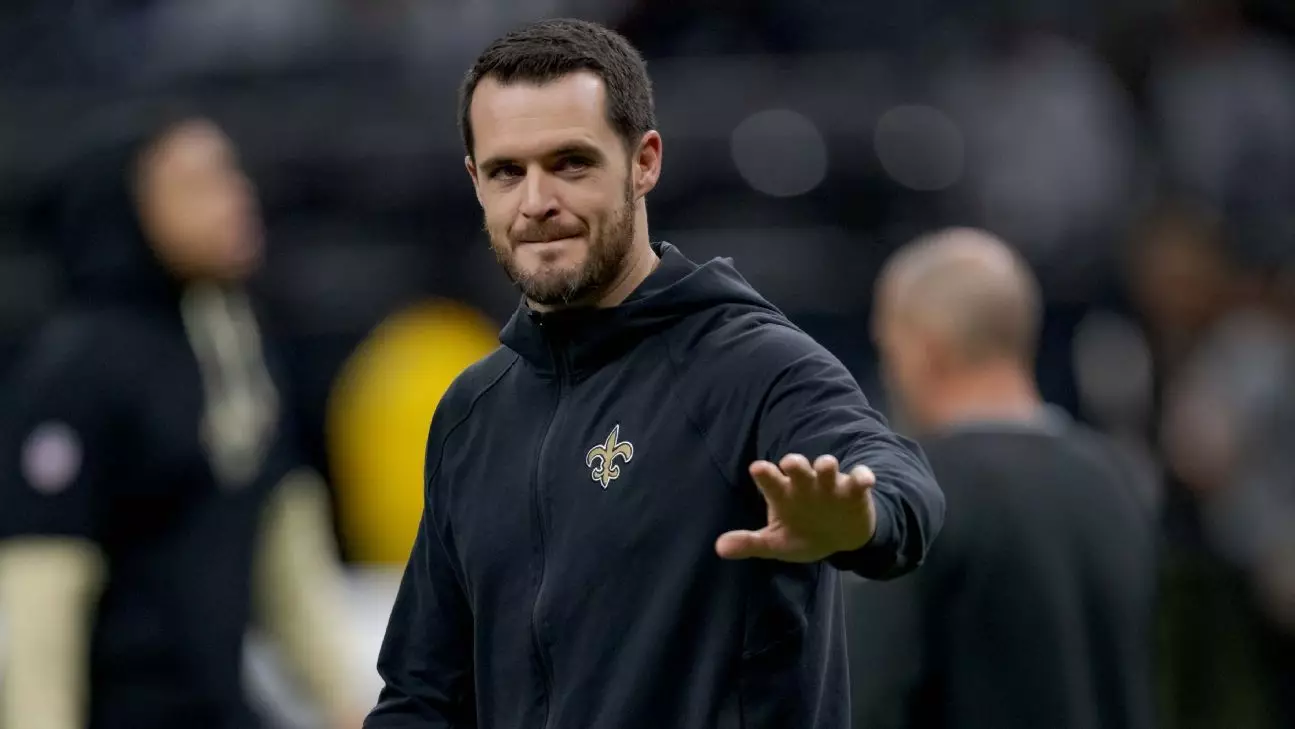Derek Carr’s recent remarks during a sermon in Las Vegas cast a spotlight on the often unwarranted scrutiny athletes face regarding their health. When Carr confirmed his shoulder injury for the first time, it marked a critical moment for not just the player himself, but for the entire narrative surrounding player injuries in professional sports. Being in the limelight means that every detail of an athlete’s life can become fodder for speculation, and Carr’s defense highlights a pressing issue: how media misinterpretation can cloud realities faced by players.
In his candid remarks, Carr expressed frustration at the rampant speculation from ESPN and social media platforms regarding the seriousness of his injury. Here’s a reality check: An athlete’s health is not merely a headline; it involves personal battles that often remain invisible to the public eye. By sharing the circumstances of his shoulder injury, Carr not only clarified his own situation but also urged fans and analysts alike to reconsider their assumptions and judgments. His insistence on transparency is a call for empathy that resonates beyond the football field.
Family First: Personal Challenges
Beyond the injury itself, Carr’s comments shed light on a more profound aspect of life for professional athletes: personal struggles. He mentioned the health issues faced by his wife, Heather, and the miscarriage that followed their initially planned trip to New Orleans. This revelation humanizes Carr and shows the complexities athletes navigate while maintaining the façade of professionalism. For Carr, prioritizing family over football isn’t just a slogan; it’s a lived commitment, as he emphasized that faith, family, and football come in that exact order, irrespective of the challenges faced.
By vocalizing these issues, Carr challenges the somewhat impersonal nature of sports reporting. The narrative often revolves around statistics, performances, and injuries, neglecting the personal toll these experiences can take on players and their families. His message is a refreshing reminder that athletes are, fundamentally, human beings with emotions, fears, and personal lives that matter deeply.
Future Prospects: The Role of Competition
Interestingly, while Carr addressed his current situation, it also comes at a pivotal moment for the New Orleans Saints as they draft quarterback Tyler Shough. General Manager Mickey Loomis described the forthcoming season as a competition, yet he affirmed that Carr remains the starter. This dynamic complicates the conversation around Carr’s injury, as fans and analysts alike are left to wonder how his current conditions will affect not only his career but also the team’s strategy moving forward.
The idea of competition within the team framework means that Carr not only needs to tend to his shoulder but also grapple with the pressures of maintaining his starting position. Although Loomis has publicly backed Carr, the inherent uncertainty surrounding his health creates an atmosphere ripe for speculation. Here again, Carr’s forthrightness about his injury serves as a strategic maneuver: he’s not just protecting his position; he’s actively advocating for a culture that values honesty over sensationalism.
In a world that often revels in negativity and speculation, Derek Carr’s narrative offers a refreshing counterpoint. His focus on mental health, family priorities, and the importance of clear communication presents a model for athletes everywhere: amid the chaos and competition, authenticity and resilience can prevail.

